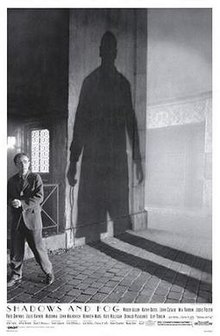
Why didn’t you leave me where I was happy? Bored young suburban boy and history buff Kevin (Craig Warnock) can scarcely believe it when six dwarfs led by Randall (David Rappoport) jump out of his wardrobe one night. Former employees of the Supreme Being (Ralph Richardson), they’ve stolen a map charting all of the holes in the fabric of time and are using it to steal treasures from different historical eras. They kidnap Kevin and variously drop in on Napoleon (Ian Holm) who employs them as his new generals, the Middle Ages where they encounter a rather dim Robin Hood (John Cleese) and back to ancient times where King Agamemnon (Sean Connery) kills a Centaur before the Supreme Being catches up with them after a rather difficult trip on the Titanic and a voyage with an ogre just as they have to deal with the Evil Genius (David Warner) in the Fortress of Ultimate Darkness … The time of legends? There’s no such thing! A little boy called Kevin, a gang of renegade dwarves, a very chill – even chipper! -Supreme Being, an egotistical Evil Genius and a Napoleon totally consumed with height: Alexander the Great? One inch shorter than me! Charlemagne? Squat little chap! Hilarious sendup of historical epics with a sneaky undertow of Oedipus – King Agamemnon (Sean Connery) wants to adopt Kevin and then makes a rather brilliant reappearance in the ‘burbs in the nick of time. Why do we have to have Evil?/I think it’s something to do with free will. An utterly beguiling piece of fantasy that educates as well as entertains, from the brains of two Monty Pythons, Michael Palin (who co-stars as romantic Vincent wooing Shelley Duvall) and director Terry Gilliam. This is for every child who wanted to escape their dreary parents: dreams can come true. Practically fizzing with invention. I thought you were international criminals!








